9 Dried Fruits And The Ailments They Can Treat (Video)
by N.Morgan
.jpg)
In today’s fast-paced world it can be a real challenge to focus on health and nutrition.
Every now and then you’re going to get caught in a situation when you’ll have to sacrifice your usual healthy dietary choices for unhealthy ones. Well here’s a way to maximize your nutrition while you are on the go while preventing and even treating everyday ailments.
Every now and then you’re going to get caught in a situation when you’ll have to sacrifice your usual healthy dietary choices for unhealthy ones. Well here’s a way to maximize your nutrition while you are on the go while preventing and even treating everyday ailments.
Internationally known researchers have stated that food policymakers should consider dried fruits on an even plane with fresh fruit when issuing dietary recommendations. While I don’t necessarily agree that fresh fruit is on an even playing field with fresh fruit, I do agree that dehydrated and dried fruits can make a valuable addition to any diet where people need longer a shelf life and handy snack loaded with antioxidants to accommodate their busy lifestyles.
One problem that arises when comparing dried fruit with fresh regarding nutrition is equating them on a weight-for-weight basis. Dried fruits are conceived to have more sugar than fresh fruit. However, when water content and portion size are accounted for, natural fruit sugars and calories are equal for dried and fresh fruits.
A recent study suggested that traditional dried fruits such as dried apricots, dried apples, dates, dried figs, raisins and sultanas, and prunes should be included in dietary recommendations for fruit and vegetable intake around the world. “Dried fruits are great sources of total and soluble fiber in the diet,” said Dr. Daniel D. Gallaher of the University of Minnesota.
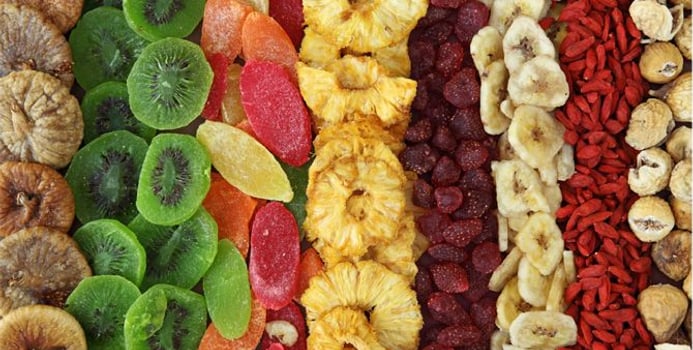
“Just as fresh fruit, they have low glycemic index values and can play an important role in preventing different aspects of metabolic diseases.”
In addition to providing fiber, dried fruits rank among the top potassium sources in diets around the world, according to Dr. Arianna Carughi, Health and Nutrition Research Coordinator for the California Dried Fruit Coalition. Dried fruits also contain a range of increasingly important bioactive phenolic compounds, as well as specific vitamins and minerals, unique to each fruit, she said.
“There is little doubt that plant polyphenols protect from heart disease. The health effects are complex and they appear to work in many different ways, not just simply as antioxidants,” said Dr. Gary Williamson of the University of Leeds. “Some fruits including dried fruits contain high levels of a variety of polyphenols and we are just starting to understand their health-protective effect,” he added.

Dehydrating Your Own Fruits
Food drying, also called food dehydration, is the process of removing water from food, thus inhibiting the growth of microorganisms (enzymes) and bacteria by the circulation of hot, dry air through the food. Removing water from food is the easiest, cheapest, and the most appropriate method of food preservation.
Does Drying Affect The Nutritional Value of Foods?
Dehydration only minimally affects the nutritional value of foods, especially when the process takes place in your own home. Most research on the nutritional value of dried foods has been conducted on foods that are commercially dried. When you dry foods at home under gentle conditions (correct temperature and a reasonable amount of drying time), you produce a high-quality product. Compared with canning and freezing, both of which involve extreme temperatures, food drying is the least damaging form of food preservation.
Here are some specifics:
- Vitamin A is retained during the drying process. Because vitamin A is light sensitive, foods that contain it-like carrots, bell peppers, mangoes-should be stored in a dark place.
- Some vitamin C is lost during the drying process because vitamin C is an air-soluble nutrient and food drying is an air-based process. When food is sliced and its cells are cut, the surfaces that are exposed to air lose some vitamin C content.
- The caloric value of fresh food stays the same when it is dried, although some dried foods, fruits, for example, taste sweeter because the water has been removed and the sugar is concentrated.
- Dried fruits and vegetables are high in fiber and carbohydrates, neither of which is affected by drying.
- Dried fruits and vegetables are naturally low in fat. Minerals available in certain fresh fruits-such as potassium, sodium, magnesium, and so on are also not altered when the fruit is dried.
9 Dehydrated Fruits That Are Great For Your Health

1. RAISINS: OSTEOPOROSIS
Often called “nature’s candy,” Raisins are cholesterol-free, low in sodium, high in fiber and totally fat-free. They are one of the richest sources of boron, a mineral documented to reduce bone loss in postmenopausal women. Sprinkle a handful into calcium-rich yogurt for optimum bone-benefits and add pecans, another food rich in boron. Average boron intake is 1-2mg a day, but a minimum of 3mg (and maximum of 10mg daily) is probably healthier.

2. DATES: FATIGUE
Feeling exhausted can make you crave sugary snacks. Dates are a great alternative as they have a relatively low glycaemic index (GI), which means they release their sugars slowly and keep energy levels steady, despite their intense sweetness. Eat with protein — a handful of walnuts, for example — to keep you feeling full.
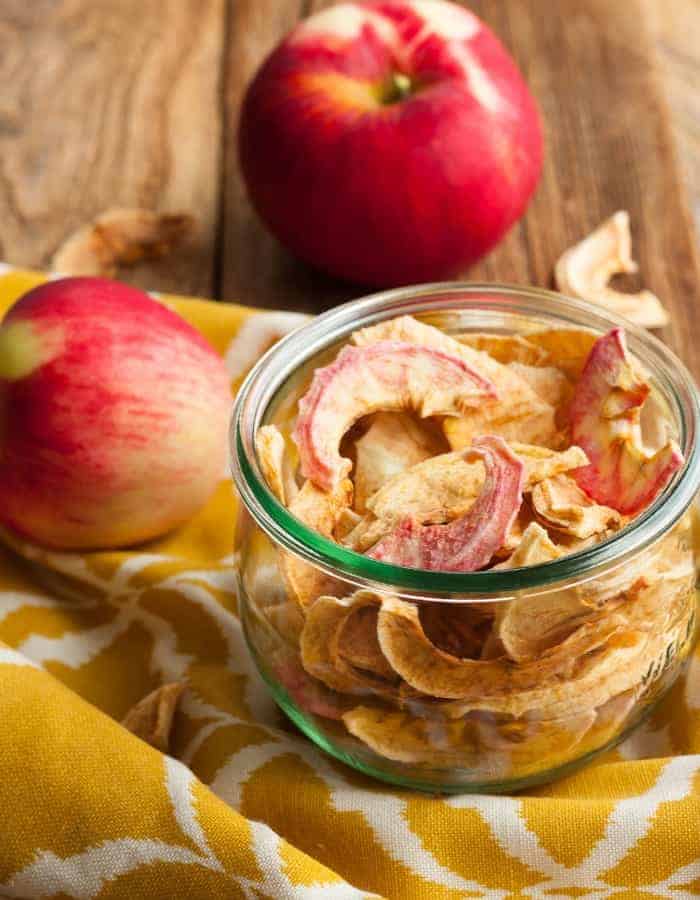
3. DRIED APPLES: HEART DISEASE
Help protect women against heart disease lowering blood fat levels by almost 25 percent, a claim unattainable by cardiovascular prescription medications. The flavonoids in dried apples act as antioxidants — enzymes that target free radicals that can damage DNA.

4. DRIED CHERRIES: GOUT
The anthocyanins in cherries, particularly the sour, or tart, the type that are found in most health stores, may be beneficial for a range of inflammatory-related conditions, including arthritis, gout and post-exercise muscle soreness.
A recent study by University of Michigan researchers revealed a cherry-enriched diet reduced inflammation markers in animals by up to 50 percent. An effective ‘dose’ for humans seems to be half a cup of dried cherries twice a day.

5. DRIED APRICOTS: HIGH BLOOD PRESSURE
Dried apricots weigh in with more than three times the potassium content of bananas and contain only a trace of salt.
That’s good for keeping down blood pressure — potassium counters the water-retaining properties of sodium, keeping blood volume lower. Recent research at the Centers for Disease Control and Prevention in Atlanta showed that consuming more potassium than sodium is protective against high blood pressure and heart disease.
Eating apricots dried means you’re likely to eat more, so it will take in more nutrients.
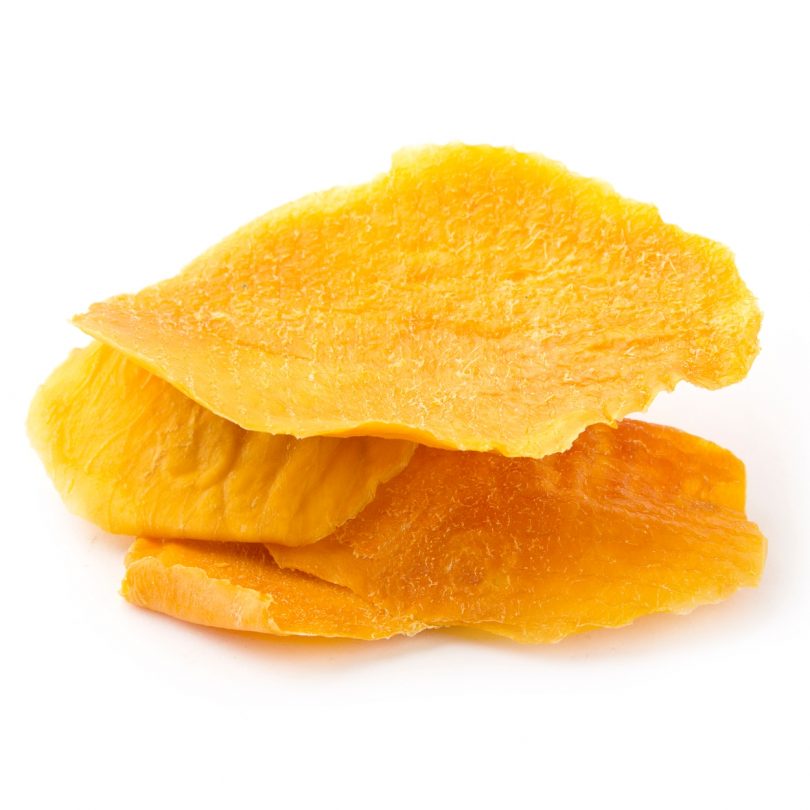
6. DRIED MANGOS: COLON & BREAST CANCER
One of the best tasting dried fruits, mango is a rich source of potassium and is also rich in iron. People who suffer from anemia can take mangoes regularly along with their dinner. It is especially good for women after menopause. The most impressive findings recently attributed to mangos is their ability to prevent or stop certain colon and breast cancer cells for proliferating.

7. DRIED CRANBERRIES: BLADDER INFECTIONS
If you’re prone to bladder infections — and 20 percent of women suffer recurrent problems — snack on dried cranberries.
In a U.S. study, two handfuls (42.5g) reduced the ‘stickiness’ of E.coli bacteria in infected women’s urine samples.
This means fewer urinary infections because the bacteria cannot attach to the bladder wall. Proanthocyanidins are the active ingredient in cranberries that provide this anti-adherence effect.
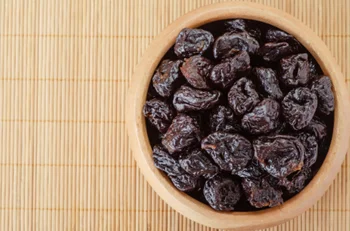
8. PRUNES: CONSTIPATION
Your mother was right — six prunes (50g) twice daily proved better at easing constipation than the laxative ispaghula (the active ingredient in Fybogel), according to a recent study. Prunes are rich in sorbitol, which draws water into the stool, making it easier to pass.

9. FIGS: ANAEMIA
Vegetarian? Four dried figs supply a quarter of the recommended daily allowance of anemia-protective iron. To get the full advantage, eat as part of an orange juice-steeped compote — vitamin C helps improve the iron your body absorbs from plant sources.
Please note that if you purchase processed dried fruits, many food manufacturers add preservatives, sugars, emulsifiers, and sweeteners. Most of these ingredients are actually toxic. Whenever you can, purchase organic fruits and dehydrate them yourself with a dehydrator. With the exception of a juicer and blender, a dehydrator is one of the most valuable appliances you will ever own to create delicious snacks while energizing and optimizing your health.
Give The Gift Of Health And Support BeforeItsNews By Trying All Our Health Products Below.
We have an affiliate program designed for content creators and affiliate marketers, who would like to sell this product, please click here for affiliate program details. Our affiliate program is designed to help you monetize your screen time.
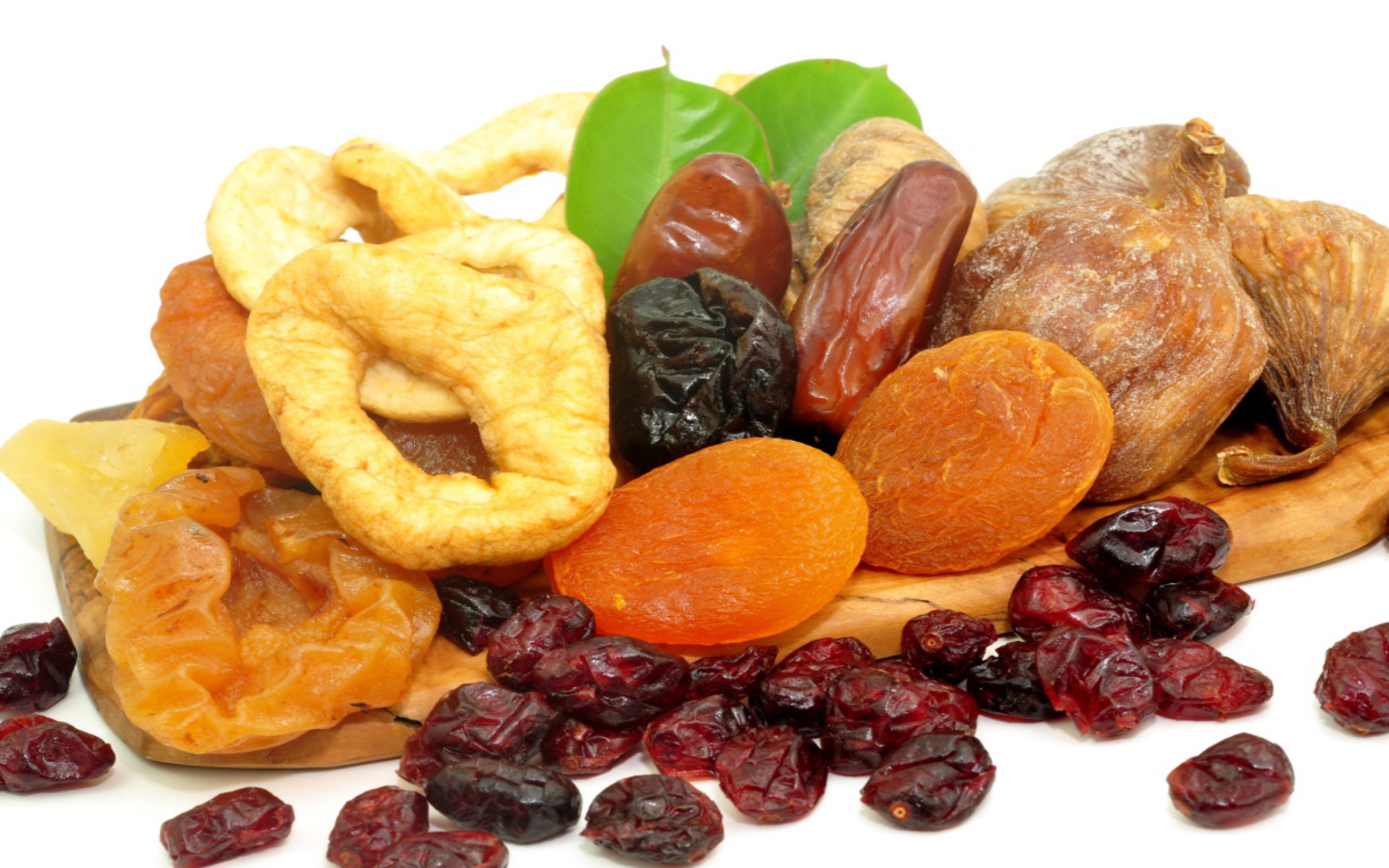
References:
.png)
Comments
Post a Comment